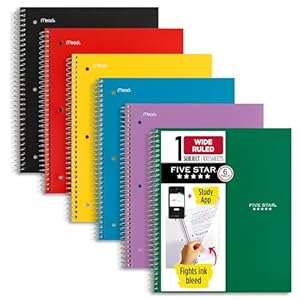I used to show in a district the place our workers was a mixture of progressive and conservative academics. Our college students and their households leaned conservative, however inside our constructing, politics not often made it by means of the door.
Then got here COVID-19.
Virtually in a single day, the nationwide tradition wars seeped into our hallways. Tensions rose, board conferences received heated, and the job of “simply educating” grew to become a political tightrope. I used to be fortunate—educating eighth grade math didn’t spark the identical scrutiny different topics did. Nobody was dissecting my each phrase, ready for me to slide. My colleagues weren’t so lucky. For them, each ebook, each bulletin board, each offhand remark might develop into ammunition. And now, extra academics than ever are leaving the classroom due to it.
Political stress is inflicting academics to depart the classroom
Since that first yr after the COVID-19 pandemic, the fatigue that political pressures carry into school rooms has solely grown. Lecturers throughout the nation are questioning whether or not the career they as soon as cherished remains to be well worth the fixed scrutiny, second-guessing, and danger of public backlash. This summer season, that stress grew to become painfully seen in Idaho, which joined a rising record of states restricting what teachers can say or display in their classrooms. The newest goal? The once-uncontroversial signal Everybody Is Welcome Right here. For a lot of academics, the message is obvious:
When kindness, empathy, and belonging are handled as political threats, what—and who—is subsequent?
The numbers inform a narrative academics already know
Knowledge from 2023-24 reports indicated that extra educators than ever had been leaving the classroom. The most recent 2024-25 reports present that a few of these numbers are leveling out, however a University of Missouri survey discovered that 78% of academics have thought-about quitting since 2020, with veteran educators particularly more likely to take into account leaving. Whereas burnout, low pay, and overwhelming workloads stay main components, a 2025 RAND study reveals a deeper disaster: Poor working situations—not simply compensation—at the moment are the highest purpose academics take into account leaving.
Educators are demanding change, placing points like psychological well being assist, class dimension, instructor autonomy, and secure, wholesome studying environments on bargaining tables and legislative agendas.
However the present political local weather is making issues worse. In line with the RAND research, 22% of academics say that the intrusion of political points and opinions into their school rooms is a top-ranked supply of job-related stress. From legal guidelines proscribing curriculum to public harassment and censorship, political stress is tipping the scales—and pushing many educators to the brink.
What political stress seems to be like within the classroom
The We Are Lecturers crew requested educators to share how politics has affected their school rooms. Right here’s what they advised us concerning the methods political stress is exhibiting up of their work.
Ebook bans and curriculum censorship
A 26-year veteran highschool English instructor now has to log each ebook in her classroom right into a district database. Mother and father can demand removals and even require particular permission for his or her baby to take a look at sure titles.
We’ve eradicated a number of titles from our English curriculum due to dad or mum complaints. It’s exhausting and demoralizing to have years of considerate curriculum planning undermined in a single day. —Nameless instructor in Indiana
She’s watched dad and mom whip whole communities right into a frenzy over a single ebook title. She says that with out increased salaries, much less top-heavy administration, and a voice in laws, she’ll doubtless stroll away as soon as her youngest baby graduates.
Legal guidelines with imprecise language
Tennessee’s imprecise “divisive ideas” regulation, which restricts how public establishments of upper training deal with sure subjects associated to race, gender, and social justice, makes it nearly unimaginable to show the reality about slavery, Jim Crow legal guidelines, and the KKK with out concern of assault.
When a pupil requested if the KKK nonetheless existed, I felt trapped in what I might say. —Ok.W., Tennessee
Ok.W. has confronted criticism from either side in the identical yr—one dad or mum accused her of perpetuating stereotypes, one other accused her of indoctrination. She says she’s going to maintain exhibiting up for her college students “so long as I might be trustworthy about historic reality.”
Quiet self-censorship
Earlier than transferring to Georgia, instructor Ms. B remembers being “too scared to debate issues with my youngsters” for concern of job loss in rural east Tennessee.
I knew I had a brief leash with literature—something ‘too progressive’ might get me in hassle. It was like strolling on eggshells. —Ms. B., Georgia
She prevented works not written by white males and sidestepped present occasions solely, realizing one misstep might value her her job. She has no plans to return to Tennessee except its training legal guidelines change dramatically.
Creating security in a local weather of uncertainty
Even in topics which can be usually much less politically focused, stress remains to be current. A center faculty math instructor says she decorates her room with inclusive imagery—art work that includes various scientists and a rainbow tote bag—not as a result of the curriculum calls for it, however as a result of college students must see that they belong.
I don’t really feel direct stress to censor, however I really feel a deep duty to create security in a local weather the place that’s not assured. —Nameless instructor in Illinois
She worries that if the Division of Schooling is dismantled, susceptible college students—particularly these with disabilities—will lose crucial protections, making her job much less about educating and extra about combating for fundamental fairness.
Fear over curriculum backlash
Whereas Hawaii hasn’t handed restrictive curriculum legal guidelines, Jordan B. nonetheless worries about parental backlash when educating about slavery in fifth grade.
I by no means wish to diminish the severity or cover the reality of our historical past, however I additionally wish to maintain classes acceptable for 10-year-olds. —Jordan B., Hawaii
She has already watched deep finances cuts slash packages and sources. She fears that with out renewed funding and assist, colleges will demand extra from academics with even fewer sources, pushing extra educators out of the career.
Censorship pushing academics out
For A.Ok., the breaking level got here when her district’s English academics started dealing with a number of ebook challenges annually. She left the English classroom solely.
The vast majority of us aren’t indoctrinating youngsters. If we might brainwash them, it will be into turning work in on time.” —A.Ok., Missouri
She plans for this to be her final yr educating, citing Missouri’s lack of assist for public training and the rising affect of maximum political mandates. “It’s a storm that’s solely getting worse,” she says.
Why political stress on academics issues for college students
When academics self-censor—or go away the career altogether—college students lose entry to nuanced conversations concerning the world. They lose mentors keen to assist them suppose critically and empathetically. Research shows that prime instructor turnover disrupts studying, particularly in high-poverty colleges. College students lose trusted relationships, and colleges wrestle to search out skilled replacements.
The breaking level
For some, the choice to depart isn’t nearly politics—it’s concerning the pile-on. Political stress typically delivers the ultimate straw for academics already dealing with overwhelming calls for. Lecturers cowl for absent colleagues, handle massive courses, and take in further work left when assist workers positions are eradicated. As our nameless instructor from Indiana put it, “The worth we’ve placed on training is so low, it’s a marvel why anybody stays.”
What academics say they want
Educators throughout states and grade ranges, from surveys and our interviews, echo the identical wants:
- A voice in coverage choices that have an effect on their school rooms
- Increased salaries and aggressive advantages
- Safety from harassment and public shaming
- Clear pointers as an alternative of imprecise, politically loaded restrictions
- Respect for his or her skilled experience
With out significant change, colleges danger dropping extra than simply head depend. They danger dropping the type of educating that helps college students perceive, query, and join with the world round them.
Or as Ms. B says:
If we maintain pretending sure realities don’t exist, our children will develop up unprepared for the world they’re truly residing in.
The price of doing nothing
Political stress in school rooms is reshaping the career. When academics need to second-guess each ebook selection, each classroom poster, and each reply to a pupil’s query, it chips away at why many people grew to become educators within the first place. The hazard isn’t simply dropping high-quality academics. It’s dropping the liberty to show actually, to create secure and inclusive school rooms, and to organize college students for the sophisticated world they’re already residing in.
Lecturers know that public training is at its finest when it displays the wants of all college students—not the political agenda of the loudest voices within the room. However that imaginative and prescient gained’t survive with out actual assist from lawmakers, communities, and oldsters who’re keen to face with educators as an alternative of in opposition to them.
If we proceed to push expert academics out of the career, our college students and future generations will face critical penalties.
For extra articles like this, be sure you subscribe to our newsletters.
Trending Merchandise










